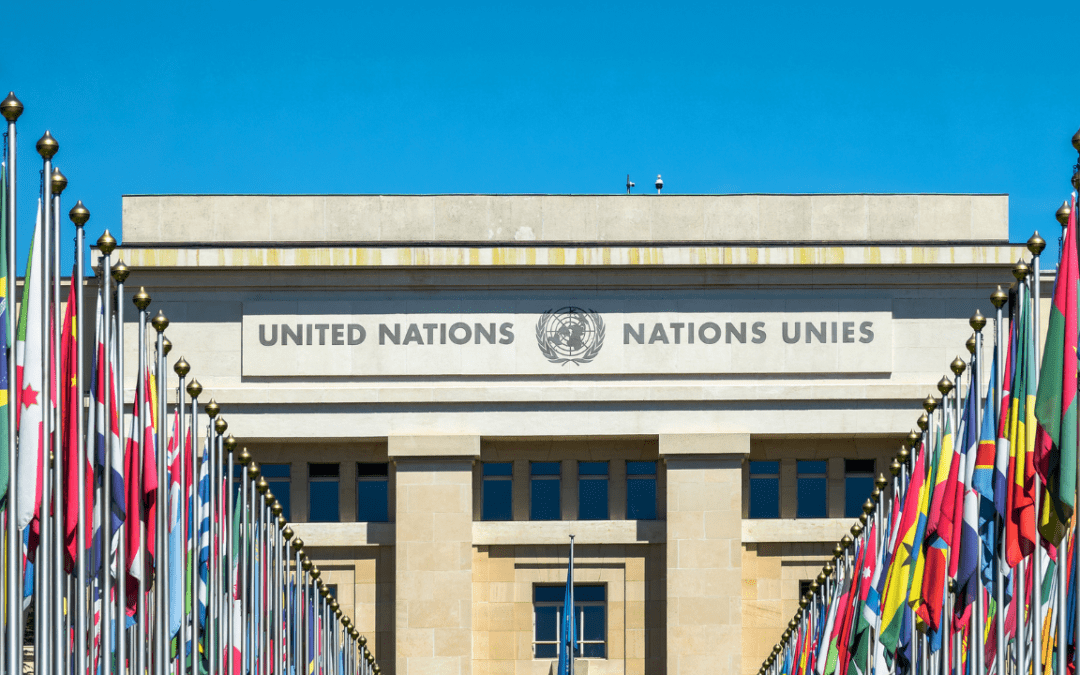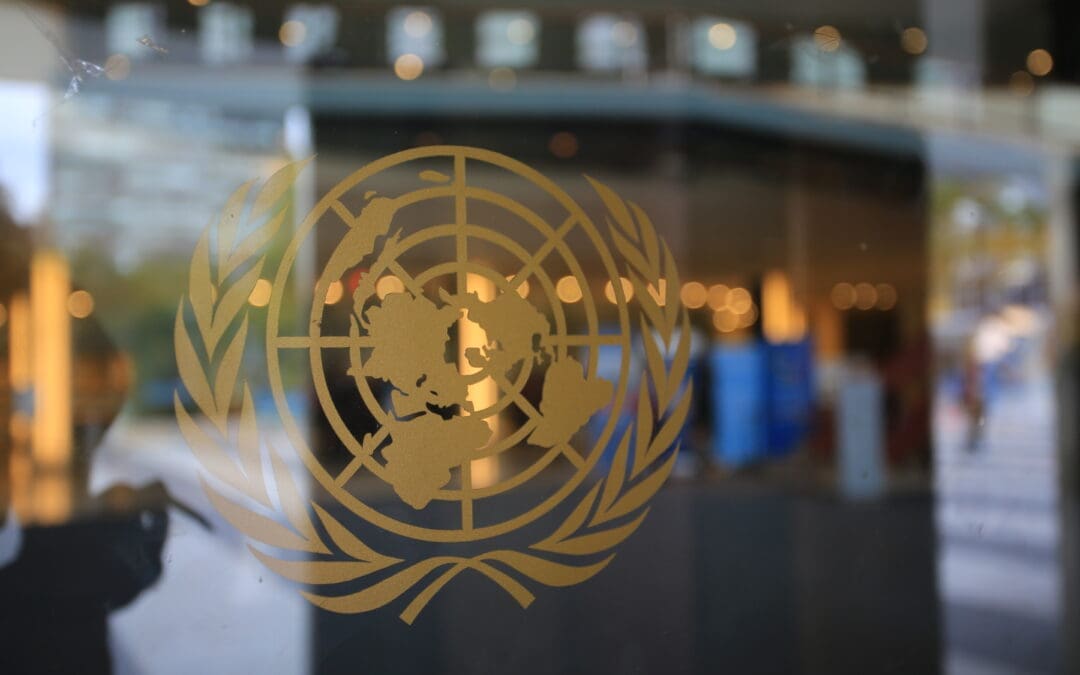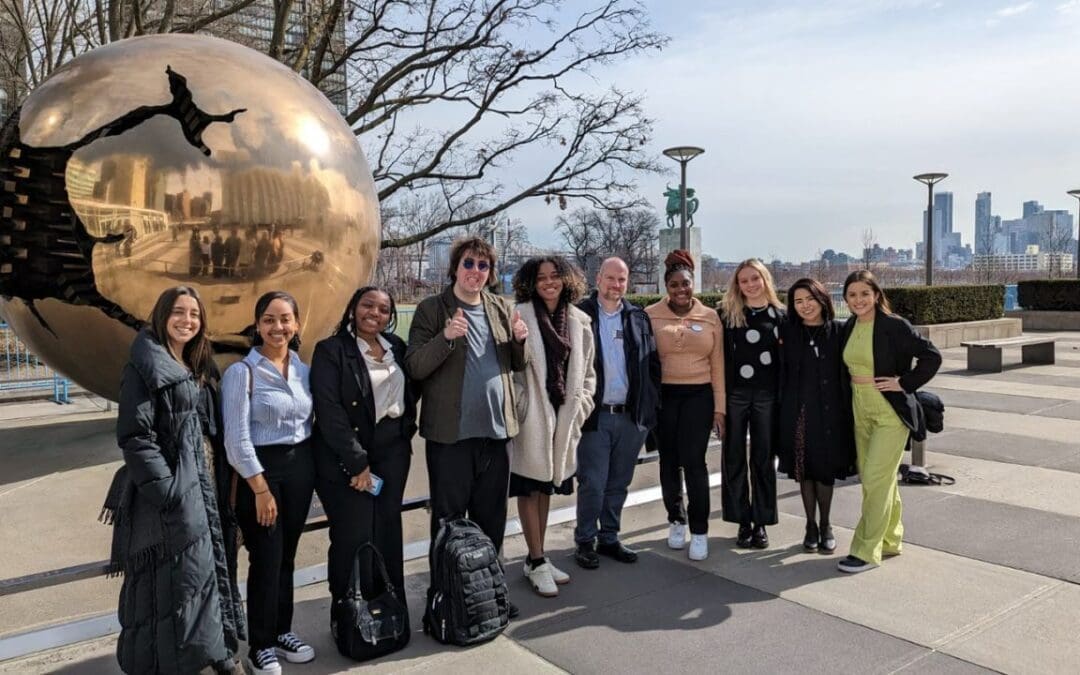
by David Oughton | Feb 20, 2026 | United Nations
Although the United Nations was created in 1945 with the goal of ending war and solving other global problems, in many cases, the international organization has been unable to fulfill its mission. Since that time, wars have been fought, unscrupulous national leaders have done whatever they can get away with, and numerous global problems remain unresolved.
The reason for the spotty record of the world organization is that many organs of the United Nations are weak and, therefore, unable to cope adequately with the enormous job that lies before the international organization and the world. The solution is to transform these UN organs by drawing upon Article 109 of the UN Charter, which lays out the method for making changes in the UN system.
Here are some of the major structural problems of key UN organs that could be solved if enough people and countries were committed to making the United Nations strong and effective.
Currently, the UN General Assembly (UNGA) can only pass nonbinding resolutions addressing how national governments should behave. Even if a nation votes for a resolution, it is not required to follow it. The UNGA is not democratic because each of the current 193 countries has the same one vote, regardless of the size of its population. A few countries have over a billion people, while some have only a few thousand. It is thus possible for a resolution in the UNGA to pass by a two-thirds majority that represents only 8 percent of the world’s population. The 65 least populous countries with a combined population below one percent of the world’s population can block the passage of a substantive resolution in the UNGA. The solution is to use a system of weighted votes based on population and other factors so that the General Assembly can pass laws regarding violations of human rights, relations among nations, and other global problems.
The UN Security Council has often been ineffective because any one of the five permanent members (the United States, Russia, China, the United Kingdom, and France) usually vetoes any resolution when it or one of its allies is involved in a dispute. Any permanent member can kill a peace resolution even if all of the other fourteen members on the Security Council vote for it. The solution is to have regional memberships on the Security Council using weighted voting so that no one nation can veto a resolution.
The UN International Court of Justice (ICJ) can only issue non-enforceable decisions. National leaders suffer no consequences for violating or for withdrawing from international treaties. Even though most nations abide by most of their treaties most of the time, national governments can violate or withdraw from treaties when they feel it is in their national interest without any concern for the common good. The solution is to give the ICJ the authority to require binding arbitration for disputes between nations or groups.
The International Criminal Court (ICC) is based on a treaty that so far has been joined by only two-thirds of the world’s governments. One-third of the countries that have not joined the ICC treaty include Russia, China, the United States, and Israel. The jurisdiction of the ICC should become universal so that, in accordance with its charter, those individuals involved in genocide, war crimes, crimes against humanity, and aggression are prosecuted when national courts are unwilling or unable to do so.
The UN system must rely on dues from national governments, which are not always paid. The U.S. government, for example, owes billions of dollars in back dues to the world organization. Furthermore, the UN system, including its many specialized agencies, must do its important work on an extremely small budget. Almost every state in the United States has a larger annual budget than the UN system. One way to provide adequate funding for the UN system would be to charge a user tax on nations, corporations, and individuals for international travel and for exploring and using the resources of the common areas of our planet that are not part of any national territory.
These proposals will only be implemented when enough people from many countries vote for leaders who support strengthening the United Nations. Until then, wars, hunger, and disease will continue to plague our planet.

by Lawrence Wittner | Aug 26, 2025 | United Nations
If one examines Donald Trump’s approach to world affairs since his entry into American politics, it should come as no surprise that he has worked to undermine the United Nations.
The United Nations is based on international cooperation, as well as on what the UN Charter calls “the equal rights…of nations large and small.” It seeks to end “the scourge of war” and to “promote social progress” for the people of the world.
By contrast, Trump has advocated an aggressively nationalist path for the United States. Campaigning for the presidency in 2016, he proclaimed that “America First” would “be the major and overriding theme of my administration.” In his 2017 inaugural address, he promised: “From this day forward, it’s going to be only America first.”
Indeed, “America First” became his rallying cry as he championed an aggressive nationalism. “You know what I am?” Trump asked a crowd in Houston. “I’m a nationalist, O.K.? I’m a nationalist. Nationalist!” Sometimes, his displays of superpatriotism―which appealed strongly to rightwing audiences―included hugging and kissing the American flag.
Given this aggressively nationalist orientation, Trump turned during his first administration to dismantling key institutions of the United Nations and of the broader system of international law. He withdrew the U.S. government from the Paris Climate Agreement, the World Health Organization, the UN Human Rights Council, and the UN Educational, Scientific, and Cultural Organization (UNESCO). He also had the U.S. government vote against the Global Compact on Refugees, suspend funding for the UN Population Fund and the UN Relief and Works Agency for Palestine Refugees, and impose sanctions on a key international agency, the International Criminal Court, which investigates and prosecutes perpetrators of genocide, war crimes, crimes against humanity, and the crime of aggression.
Nevertheless, many of these Trump measures were reversed under the subsequent presidency of Joseph Biden, which saw the U.S. government rejoin and bolster most of the international organizations attacked by his predecessor.
With Trump’s 2020 election to a second term, however, the U.S. government’s aggressively nationalist onslaught resumed. In January 2025, U.S. Representative Elise Stefanik (R-NY), testifying at a Senate Foreign Relations Committee hearing on her nomination to become U.S. ambassador to the United Nations, assailed the world organization, and promised to use her new post to promote Trump’s “America First” agenda. “Our tax dollars,” she argued, “should not be complicit in propping up entities that are counter to American interests.” Joining the attack, Senator Jim Risch (R-Idaho), the committee chair, sharply criticized the United Nations and called for a reevaluation of every UN agency to determine if its actions benefited the United States. If they didn’t, he said, “hold them accountable until the answer is a resounding yes.” He added that “the U.S. should seriously examine if further contributions and, indeed, participation in the UN is even beneficial to the American people.”
Simultaneously, a new Trump administration steamroller began advancing upon UN entities and other international institutions viewed as out of line with his “America First” priorities. At his direction, the U.S. government withdrew from the World Health Organization and the UN Human Rights Council, refused to participate in the UN Relief and Works Agency, announced plans to withdraw from UNESCO, and imposed new sanctions on the International Criminal Court. In the UN Security Council, the U.S. government employed its veto power to block a June 2025 resolution demanding a permanent ceasefire in Gaza and release of all hostages―a measure supported by the 14 other members of that UN entity.
The Trump administration has also worked to cripple the United Nations by reducing its very meager income. In July 2025, rescissions legislation sponsored by the administration and passed by the Republican-controlled Congress pulled back some $1 billion in funding that U.S. legislation had allocated to the world organization in previous budgets. This action will have devastating effects on a broad variety of UN programs, including UNICEF, the UN Development Program, the UN Environment Program, the UN Office for the Coordination of Humanitarian Affairs, and the UN Fund for Victims of Torture.
Moreover, the administration’s fiscal 2026 budget proposes ending UN Peacekeeping payments and pausing most other contributions to the United Nations. Although U.S. funding of the United Nations is actually quite minimal―for example, dues of only $820 million per year for the regular UN budget―the U.S. government has now compiled a debt of $1.5 billion (the highest debt of any nation) to the regular budget and another $1.3 billion to the separate UN Peacekeeping budget.
The Trump administration’s hostility to the United Nations is sharply at odds with the American public’s attitude toward the world organization. For example, a Pew Research Center poll in late March 2025 found that 63 percent of U.S. respondents said that their country benefited from UN membership―up 3 percent from the previous spring. And 57 percent of Americans polled had a favorable view of the United Nations―up 5 percent since 2024.
Furthermore, a University of Maryland public opinion survey in June 2025 found that 84 percent of Americans it polled wanted the U.S. government to work with the United Nations at current levels or more. This included 83 percent supporting UNICEF, 81 percent UN Peacekeeping, 81 percent the UN World Food Program, 79 percent the World Health Organization, and 73 percent the UN Environment Program.
Nor was this strong backing for a global approach to global affairs a fluke. Even when it came to the International Criminal Court, an independent international entity that the U.S. government had never joined and that Trump had roundly denounced and twice ordered sanctioned, 62 percent of Americans surveyed expressed their approval of the organization.
Trump’s “America First” approach can certainly stir up his hardcore followers. But most Americans recognize that life in the modern world requires moving beyond a narrow nationalism.

by Citizens for Global Solutions | Apr 3, 2025 | United Nations
Sixteen years after the fateful day the United Nations (U.N.) charter was promulgated in San Francisco, President John F. Kennedy memorably intoned on a return to that city that the U.N. “remains mankind’s best hope to conquer war, poverty, and disease.” Across subsequent decades this aspiration has been shared by U.S. presidents from Reagan, who believed that U.N. could help “bring about a new day,” to George H.W. Bush, who recognized the U.N. system as “poised to historic vision of its founders—a world in which nations recognize the shared responsibility for freedom and justice.” Today, the U.S. posture seems to reduce the U.N. and its various agencies and departments to poker chips or lots at auction.
The late President Carter emphasized that “[t]he United Nations is the best available institution to support the values and aspirations that the United States shares with other peace-loving nations.” Of course, “best available” does not mean unflawed. The U.N. is a human-made institution and, therefore, fallible. It is incumbent on all those who support effective global governance, human rights, and the rule of law to underscore areas for improvement, while adapting to new polycrises and fresh challenges.
None of this is easy. But, as the leader of an organization that has supported the U.N. project almost since its inception, I am proud that our members have championed reform efforts while hewing to the vision that guided the U.N.’s founding.
What is easier is to reduce the U.N. to a stock to be traded, a poker chip to be gambled, or a lot to be auctioned to the highest bidder. The current U.S. administration uses its time in the General Assembly Hall to disavow goals related to sustainable development, withdraw from human rights commitments, and oppose such basic principles as “peaceful cooperation” and “judicial well-being.” Alarmingly, pundits have jumped on the bandwagon to reduce the project of humankind to a bad real estate deal.
This year, the U.N. will commemorate its 80th anniversary—slightly ahead of the average U.S. life expectancy projected for 2025 of 79.4 years. Anyone who has visited the Geneva premises lately, where an ongoing liquidity crisis has occasioned desperate measures, like heating cuts, has reason to fear for this octogenarian’s health.
Perhaps the venal attitude is best typified by an opportunistic “independent, non-affiliated initiative,” DOGE-UN, which claims to be a “non-profit organization incorporated in New York State.” According to its website, “It analyzes each institution and the broader geopolitical marketplace on whether to ‘hold, buy or sell’ their stakes in international organizations.” The outfit is indeed incorporated in New York as a business. It is not listed on the New York State Attorney General’s Office public registry of charitable and non-profit organizations. Research indicates it is not affiliated with the federal Department of Government Efficiency (DOGE).
Whatever the tax status of this start-up, the approach it advances of “hold, buy, or sell” fails to recognize that global cooperation is not a zero-sum game. Viruses do not carry passports. Climate disasters do not wait behind velvet ropes. Nuclear reactors are not impressed by border demarcations.
Finally, if altruism fails to inspire global cooperation, perhaps self-interest can. “America first” style critics of the U.N. frequently fail to note that the United States is the largest recipient of U.N. contracts – far outstripping our dues. In the words of Peter Yeo, President of the Better World Campaign, “U.S. companies do well and do good by taking part in the U.N.’s lifesaving work.”
On the U.N.’s Oak anniversary, we must not take its strength and endurance for granted. Please consider making your voice heard by contacting your legislators and urging support for the U.N. and its agencies.
As you do, you may remind them that what transpired in San Francisco 80 years ago was not a poker game but a promise to humankind and our planet.

by Marina Jiménez Melgosa | Mar 30, 2023 | Global Cooperation, United Nations
Being invited to the first Global Future Forum in New York City from March 20-22 was something I never imagined when I arrived in the United States seven months ago. My name is Marina Jiménez, and I am a fourth-year Law and Political student from Universidad Carlos III de Madrid, Spain. Last September, I came to the United States to study for a year at Northeastern University (Boston) and, I was given an opportunity to be sponsored by Citizens for Global Solutions to not just to be part of the first Global Future Forum but to present my research paper, “Open Door opportunities that leave many young people on the doorstep” about the exploitative unpaid internships in the United Nations (UN) at the Youth Pavilion..
But first things first. What was the Global Futures Forum? The Global Futures Forum (GFF) was a two-day event celebrated in New York to conclude several months of work on the “People’s Pact for the Future”, a document that encapsulates several proposals made by civil society about the UN’s future and the reforms that must be made, as an attempt to not only be heard but be presented at the Summit of the Future in 2024. During the previous weeks, Coalition For the UN We Need (C4UN) and the Stimson Center– the coalition that made it all possible; coordinated different E-consultations related to seven tracks: Peace and Security, Human Rights and Participation, UN and Global Governance and Innovation, Global Economic and Financial Architecture, Environmental Governance, Development and Digital Compact. By doing so, people all around the world, all ages and all backgrounds got the chance to bring to the table their concerns and suggestions for a better future. Undoubtedly, GFF represents a significant milestone in the way civil society supports intergovernmental processes. Empowering civil society in international decision-making is the first step towards a stronger, more networked, and inclusive multilateral UN system.
To this effect and to ensure GFF was inclusive itself, it included an entirely youth-led and youth-focused forum, promoting the key role of youth in the monitoring, review and the implementation of Our Common Agenda and the achievement of the Sustainable Development Goals (SDGs). Needless to say that youth representation is a critical stakeholder that is almost never invited to the negotiating table, so being invited and having a voice is an important part of civil society has been an important move. While historically, the lack of young people in high decision-making processes is common, young have the power and full knowledge of our concerns and ambitions, and we will no longer sit on the sidelines. We demand to be part of the conversation and the solutions that concern our futures moving forward. Listening to the voice of youth is a vital part of understanding our society as a whole.
Youth have been undervalued and many in power tend to think that we are “too young and inexperienced” to be a relevant player on the field. But we are not. We are nearly half of the world’s population, and we are more educated than ever. We do not want to be just consulted. We are tired of being asked to share our opinions and solutions without seeing any real change. We want to see our proposals being taken seriously, to the same extent as those of the rest of the involved stakeholders. We want to have a say in our future. We want to get on Board.
That is why I am pleased that the “People’s Pact for the Future” that we drafted will reach the hands of the UN Secretary-General, António Guterres, and the negotiating parties at the Summit for the Future 2024. It is the most useful way to get our claims to where the decisions that affect our day-to-day lives are made. While not every recommendation will materialize from the conference, we must continue to raise our voices at all levels of power, what we experienced could be a turning point in the way the world thinks about and treats youth. It remains to be seen whether they seize the opportunity or miss the boat again.





























